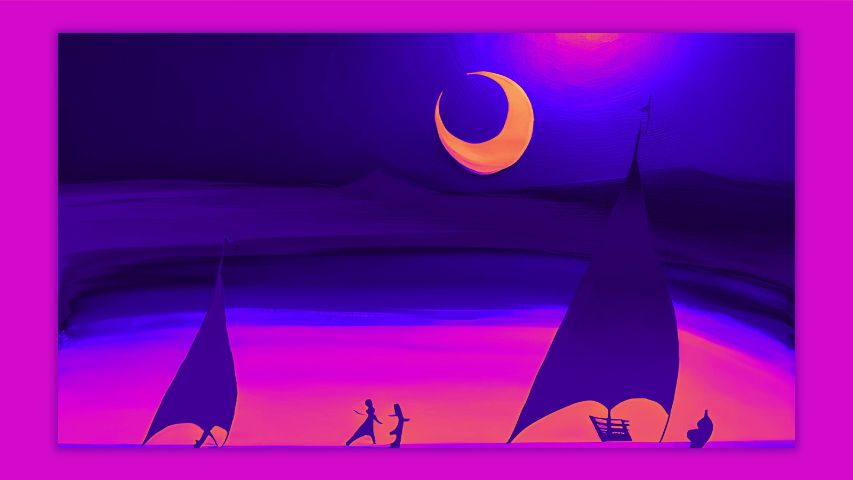Today, Humra Quraishi talks about why she will pray namaz but will not celebrate Eid.
I’m not wrong in saying that never before, in the holy month of Ramzan, have there been this many communal attacks against the largest minority community in the country, the Indian Muslims. During this month of Ramzan, there has been one incident after another, where men from the majority community have targeted masjids, madrasas and namazis in mosques – not even the Imams were spared.
Communal violence is on the rise, and it poses threat and danger to the Muslims in India and their survival. Over the last six years or so I have been observing Eid but I haven’t been ‘celebrating’ it, as the reality is too painful for me. The violence and hate all around us, saddens me. What, at the end of the day, is there left of my identity when I’m not free to bow my head in prayer? Why do I have to think a hundred times before wearing a hijab, a skull cap, before cooking meat or for that matter to even look like a member of my own community, a musalman!
For this Eid-ul-Fitr, I have no plans nor inclination to celebrate! Yes, I will definitely observe Eid and say my namaz.
I’ve been feeling disillusioned - there is a growing sense of hopelessness, fair play and justice is becoming hazier by the day. If I’m taunted and attacked because of my Muslim identity on a day-to-day basis, where do I go seeking justice? Will the police wallahs understand my agony? Is there a helpline? Will it rescue me?
I have heard the worst possible communal comments made to my face but have had to keep quiet. And whilst taking calls on my mobile phone, in public and open spaces, when I say ‘As-salaam-alai-kum’ or ‘Walai-kum–salaam’ (may peace be on you), I feel eyes turn on me. I’m probably not attacked because I’m a sari clad Muslim. What if I was wearing a burqa or a skull cap? It won’t be amiss to say that the Muslims in the country are feeling side-lined and are also living in fear of being attacked by unemployed goons. This, poisoning of the minds, has been taking place since the early 1990s. Hate was seeded to young impressionable youth during the rath yatra of LK Advani, which led to making people believe that unlawful communal violence is justified. The demolition of the Babri Masjid also divided people in ways that could not have been imagined.

How can Muslims feel secure in their own country, is the question. This was the nation that their forefathers, who lie buried in the soil, chose to be with post India’s partition in 1947. After about two months of Eid-ul-Fitr, is Eid-al-Adha – the ‘festival of the sacrifice,’ which is based on Prophet Abraham’s supreme sacrifice. When he was asked by God to sacrifice his son Ismail, he agreed, not aware that it was a mere test for him and instead of his son, what lay in front of him was a goat. This tradition has continued over centuries now. On every Eid–al-Adha, an animal, be it a goat, sheep, camel or buffalo, is sacrificed by Muslims across the world. And the meat is distributed among the poor and also among friends and relatives.
Today, many Muslims cook vegetarian food on Eid. In those good old days it would have been kebabs, biryani, qorma and qeema. But not in this murky climate prevailing, where one can be attacked for any reason – cow protection being one. Propaganda surrounding the traditions of Muslims is spread deliberately to keep communities divided. Muslims are called ‘adamkhoors or ‘goshtkhoors’ in the most negative of ways.
However, the truth is best told by the Butchers of our country – they will tell you that non-Muslims are the biggest consumers of meat in India. The meat industry is controlled by non-Muslims. I’m not talking of small time qasais here, but the big suppliers and owners of this industry. I have, before me, two well-researched books, put together by the Lucknow based botanist Dr M.I.H. Farooqi, which say that a large majority of Muslims in India are vegetarians. These two books, ‘Plants of The Quran’ and ‘Medicinal Plants In The Traditions of Prophet Muhammad’ (Sidrah Publishers) are sufficient to know the significance of plants, herbs, fruit, grain, spices, vegetables in our daily lives.
Dr. Farooqi has quoted extensively from the Hadith and the Quran, stressing the qualities of each little grain, plant and fruit. Here’s what it conveys: “‘Plants of Quran’ is a purely scientific treatise in which all the plants and plant products mentioned in the Holy Quran have been described with respect to their botanical identification, chemical composition, their medicinal properties and uses. ‘Medicinal Plants in the Traditions of Prophet Muhammad’ is a scientific study of the medicinal, food and aromatic plants mentioned in the Traditions (Ahadith) of well-known collections of Bukhari, Muslim, Tirmidhi, Abu Dawud, Ibn Maja, Nasai. More than seventy plants have been described separately with their relevant traditions.”
It is about time all the prejudices around Muslims are done away with. But the politicians will not allow that to happen because it doesn’t suit their agenda. Each one of us has to bring an end to this bogus propaganda about the ‘other’ so that we can co-exist.
I am ending with Anju Makhija’s verse, Vanishing Words, from the Hawakal published - Amity Peace Poems:
Let go of the moment, it never was yours/never will be. Stockpile the papers/turn on the tap, till the ink bleeds/till blood feels like water/flowing easily between/impervious niches//Let our internal/confabulations/weave the/Joy of/nihility.

-853X543.jpg)



-173X130.jpg)

-173X130.jpg)
-173X130.jpg)

-173X130.jpg)
-173X130.jpg)
-173X130.jpg)